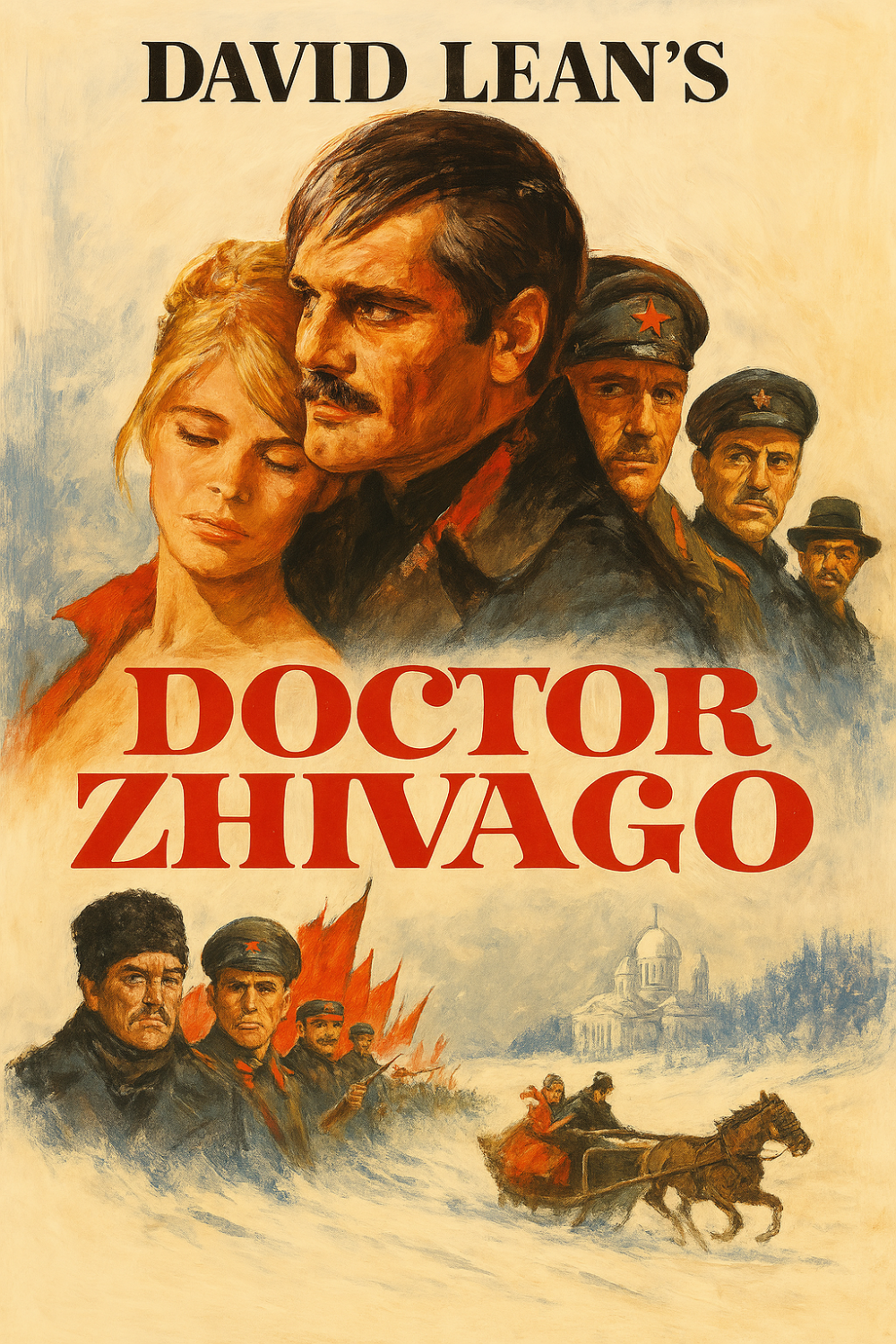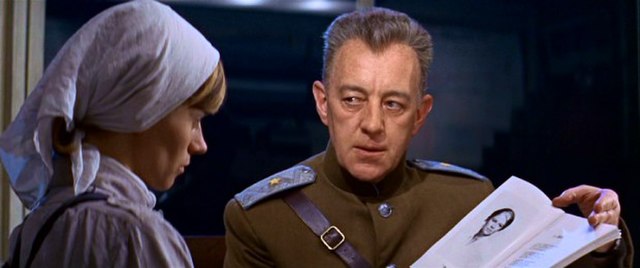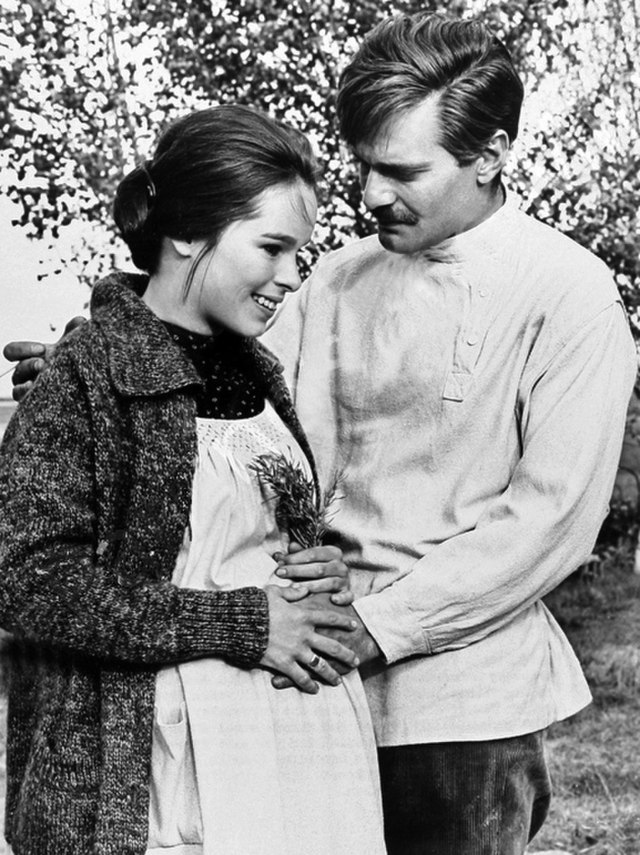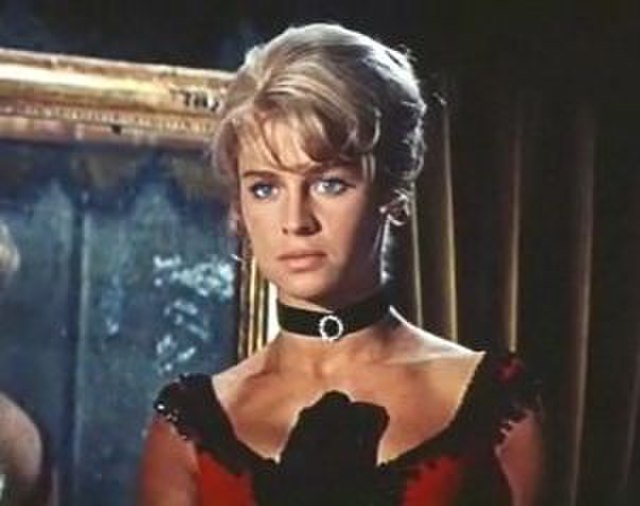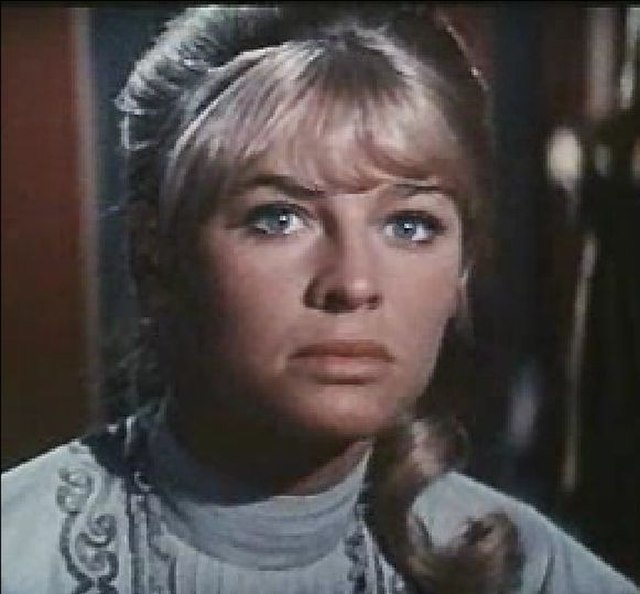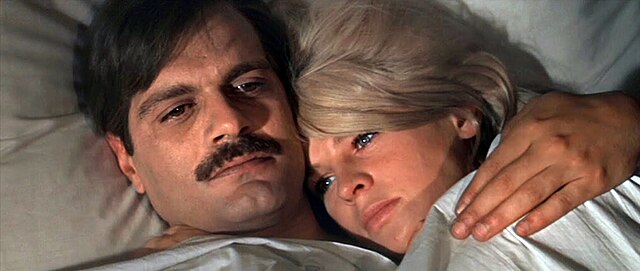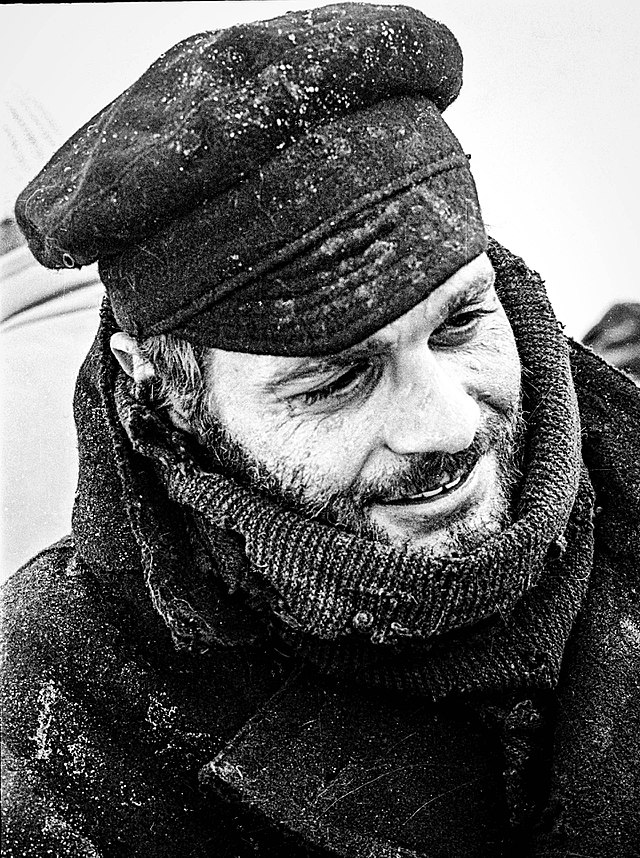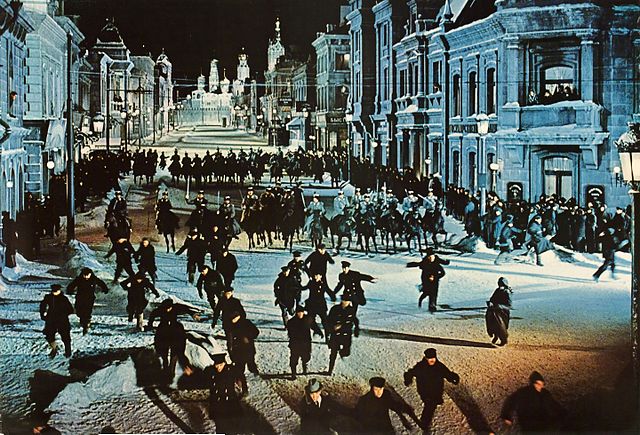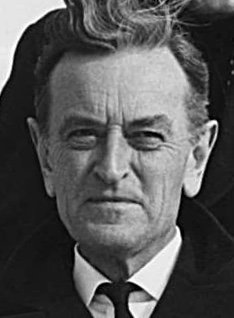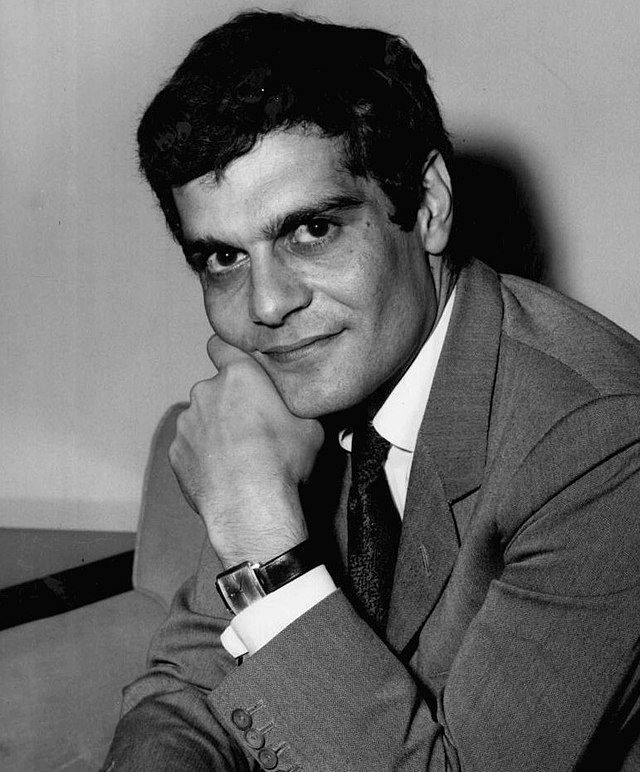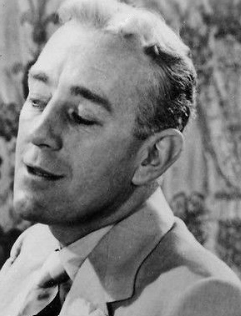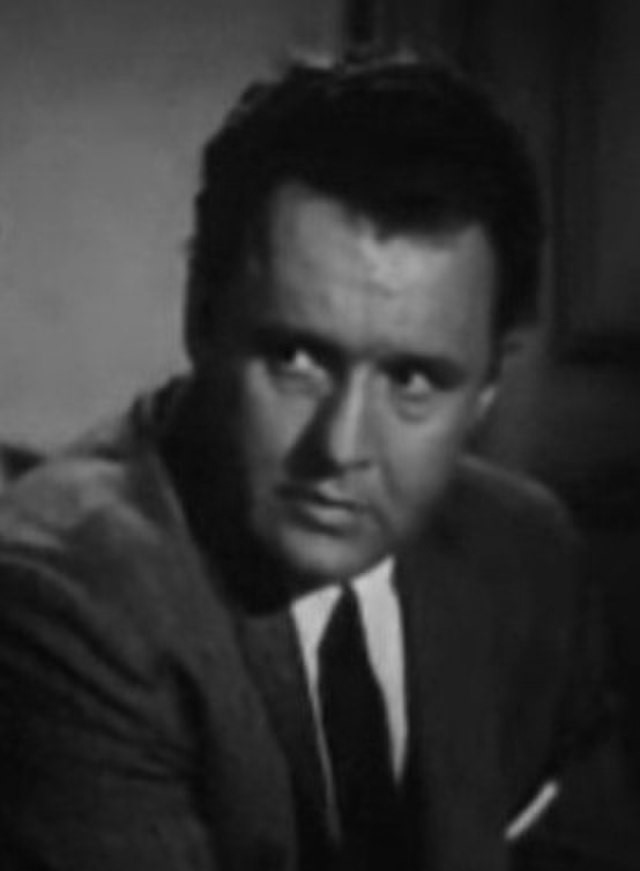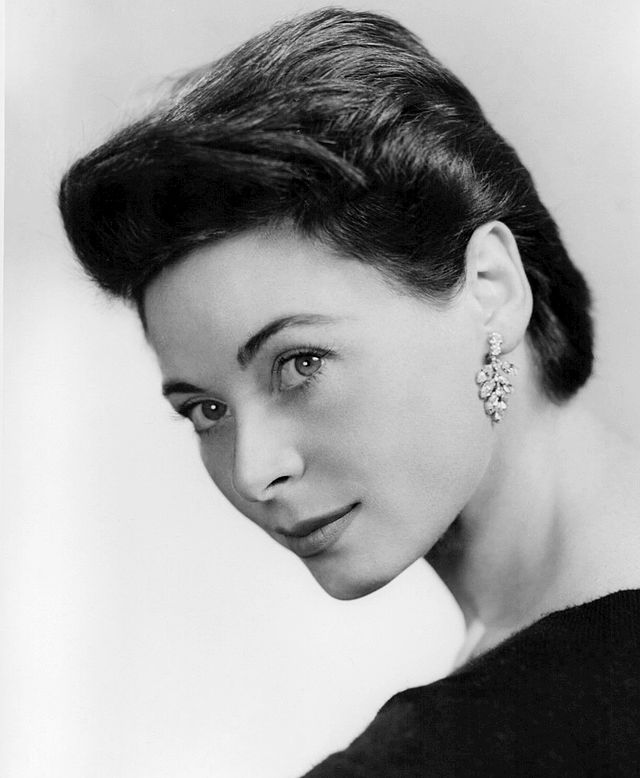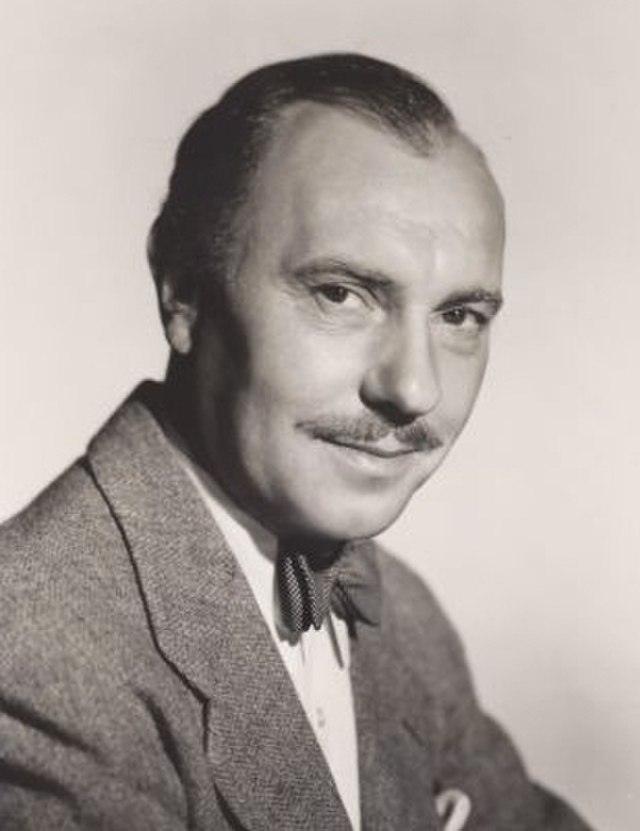Doctor Zhivago – 1965
Summary and Analysis
Doctor Zhivago is an epic romantic drama set against the vast and turbulent backdrop of early 20th-century Russia. The film spans the final days of Imperial Russia, through World War I, the Russian Revolution, and into the chaos of the Russian Civil War. Through the life of the idealistic physician and poet Yuri Zhivago, the story weaves a deeply human tale of love, loss, and survival amidst historical cataclysm.
________________________________________
Narrative Structure
The film uses a framing device: the narrative is introduced and partially told by General Yevgraf Zhivago (Alec Guinness), Yuri’s half-brother, as he searches for Yuri’s lost daughter. This structure casts the entire tale in a tone of memory and nostalgia, adding a bittersweet lens through which we view the events.
________________________________________
Plot Summary
Yuri Zhivago (Omar Sharif) is a sensitive, introspective man raised by the Gromeko family after the death of his mother. He eventually becomes a doctor and a poet, and marries Tonya Gromeko (Geraldine Chaplin), the daughter of the family that raised him. Their life in Moscow is comfortable, cultured, and seemingly secure.
Parallel to Yuri’s life is that of Lara (Julie Christie), a strong yet emotionally vulnerable woman whose fate becomes intertwined with Yuri’s. She is initially involved in a manipulative and abusive relationship with Viktor Komarovsky (Rod Steiger), a powerful and corrupt lawyer. Lara eventually marries Pasha Antipov (Tom Courtenay), an idealistic revolutionary who later transforms into the fearsome Bolshevik commander, Strelnikov.
Yuri and Lara meet during World War I when she serves as a nurse and he as a doctor. A deep, unspoken bond forms between them. After the war, Yuri returns to a Moscow transformed by revolution—property confiscated, hardship everywhere. Eventually, Yuri and his family flee to the Ural Mountains, hoping to escape the revolution's reach. There, he unexpectedly reunites with Lara in the town of Varykino.
Their relationship deepens, becoming a passionate but doomed affair. The world around them is unforgiving. Political suspicion, personal betrayals, and the crushing force of war and ideology close in. Yuri is forcibly conscripted by partisans, Lara’s husband disappears and re-emerges as a radicalized revolutionary, and eventually, even their remote refuge is overrun by the demands of the new regime.
In the film’s final act, Yuri and Lara are torn apart by historical forces they cannot resist. Lara disappears, likely sent to a labor camp. Yuri returns to Moscow, but never recovers. Years later, he dies of a heart attack in the street, a forgotten poet in a city that no longer remembers him.
The story ends as General Yevgraf continues to search for Lara and Yuri’s daughter, representing both a glimmer of continuity and the haunting loss of an entire generation’s dreams.
________________________________________
Themes and Analysis
The Destructive Power of History
History is not merely a backdrop in Doctor Zhivago—it’s a crushing, impersonal force. Revolutions, wars, and ideologies sweep through individual lives like hurricanes. Yuri and Lara’s love, while passionate and sincere, is continually thwarted not by personal failure but by historical inevitability.
The Inner Life vs. the Outer World
Yuri represents the artist, the dreamer, the private man in a world demanding public allegiance. His poetry, deeply personal and emotional, becomes politically dangerous. His internal world cannot survive the external world’s demands, symbolizing the suppression of individuality in the face of collectivist ideology.
Love and Loss
At its core, Doctor Zhivago is a tragic love story. Yuri and Lara's love is both eternal and ephemeral. It exists outside of time, yet is constantly interrupted by time. Their romance is beautiful because it is unattainable, and its impermanence lends it profound emotional weight.
Human Resilience
Despite all the suffering, there is a quiet thread of endurance throughout the film. Characters like Yuri, Tonya, and Lara keep going, despite everything. Their survival is not dramatic but deeply human.
The Landscape as Character
David Lean uses Russia’s vast landscapes as an emotional canvas. Snowbound fields, crumbling cities, and endless steppes mirror the characters' isolation, despair, and fleeting hopes. The visual grandeur enhances the emotional and symbolic depth of the story.
________________________________________
Cinematic Style and Significance
David Lean’s direction is operatic, measured, and visually stunning. Every frame is composed like a painting, using light, shadow, and landscape to convey psychological nuance. Maurice Jarre’s haunting score, especially “Lara’s Theme,” acts almost as an emotional narrator, recurring at moments of love, loss, and longing.
The film blends sweeping epic with intimate human drama, making it both grand and deeply personal. It doesn’t glorify revolution or war—instead, it laments what is lost: love, poetry, individuality, and peace.
Classic Trailer Doctor Zhivago
Main Cast
• Omar Sharif – Yuri Andreyevich Zhivago
• Julie Christie – Lara Antipova
• Geraldine Chaplin – Tonya Gromeko (Zhivago’s wife)
• Rod Steiger – Viktor Ippolitovich Komarovsky
• Alec Guinness – Gen. Yevgraf Zhivago (Yuri’s half-brother and narrator)
• Tom Courtenay – Pasha Antipov / Strelnikov
• Siobhán McKenna – Anna Gromeko (Tonya’s mother)
• Ralph Richardson – Alexander Gromeko (Tonya’s father)
• Rita Tushingham – The Girl (presumed to be Lara and Yuri’s daughter)
• Noel Willman – Razin (Bolshevik official)
• Gerald Sim – Medical officer
• Geoffrey Keen – Professor Boris Kurt
• Bernard Kay – The Bolshevik officer
• Klaus Kinski – Kostoyed Amoursky (prisoner on the train)
• Adrienne Corri – Amelia (Lara’s mother)
• Mark Eden – Engineer at hydroelectric station
• Jack MacGowran – Petya (Zhivago family servant)
• Eric Porter – Yuri’s father (brief appearance)
• Lili Muráti – Woman passenger on train (uncredited)
David Lean’s Direction in Doctor Zhivago
A masterclass in epic storytelling through emotion, space, and silence.
________________________________________
David Lean’s direction in Doctor Zhivago is a study in grandeur balanced by intimacy. Known for his epic films like Lawrence of Arabia and The Bridge on the River Kwai, Lean brings his signature command of scale and scope to Doctor Zhivago, but here he adds an even deeper layer of emotional introspection. His approach creates a film that feels vast yet deeply personal—a love story set not just in history, but against it.
________________________________________
Epic Vision, Human Focus
Lean’s ability to capture sweeping historical moments without losing sight of the individuals at their center is one of his greatest achievements. In Doctor Zhivago, he places personal emotions—love, longing, grief—amid the seismic shifts of the Russian Revolution and Civil War. He uses grand visuals not merely for spectacle but to mirror the inner lives of the characters. Vast snowfields become metaphors for isolation, ruined cities echo the disintegration of personal hope, and trains crossing endless landscapes feel like the slow grind of fate.
Lean doesn’t just film events—he lets us feel their weight on the soul.
________________________________________
Visual Storytelling and Composition
Lean was a visual perfectionist, and Doctor Zhivago is perhaps one of the most beautiful films ever made. Working with cinematographer Freddie Young, Lean composed each frame with painterly precision. He uses natural light, long takes, and rich textures to tell the story even when no words are spoken.
Examples include:
• The frozen dacha, where the interior is iced over like a memory frozen in time—a visual symbol of love suspended and unreachable.
• The use of windows and doors, often framing characters like paintings, suggesting entrapment or emotional distance.
• Montages and dissolves, especially during dreamlike transitions, give the film a poetic rhythm.
________________________________________
Control of Pacing and Tone
Lean’s pacing is deliberate and operatic. At nearly three and a half hours, the film unfolds slowly, almost like a novel. He gives time for silences, stolen glances, and small gestures—moments that in another director’s hands might be lost. This pacing reflects the stillness of memory, the quiet ache of lives interrupted.
While some critics found the tempo too languid, Lean uses this spaciousness to let emotion linger and settle. Scenes are allowed to breathe, and the viewer becomes immersed in a world that feels lived-in, not rushed.
________________________________________
Use of Music and Sound
Lean collaborates closely with composer Maurice Jarre, whose haunting “Lara’s Theme” becomes the emotional heartbeat of the film. Lean uses the score not just to decorate scenes, but to evoke memory, longing, and tragic inevitability.
Silence is also a key tool. He allows moments of stillness where snow falls or wind howls, and it is within this silence that the film speaks loudest. These moments often say more than pages of dialogue could.
________________________________________
Guiding Performances Through Restraint
Lean’s direction of actors is precise yet unobtrusive. He does not force overt dramatics. Instead, he draws subtle, restrained performances that align with the film’s atmosphere of quiet desperation. Omar Sharif as Zhivago expresses immense emotional depth through small changes in expression or gaze. Julie Christie’s Lara holds her trauma just beneath the surface, allowing it to seep through in brief moments of vulnerability.
Lean trusts the audience to observe, to feel without being told, and this approach gives the film its haunting power.
________________________________________
Emotional Distance as a Style
Interestingly, Lean’s direction in Doctor Zhivago has often been noted for its emotional coolness—a certain reserve in portraying characters’ inner lives. Rather than melodrama, Lean chooses detachment, aligning us with Yuri’s own poetic and observational perspective. This choice has been debated: some feel it dampens emotional engagement, while others see it as a reflection of how trauma and repression work in real life.
This distance is not indifference, but a stylistic echo of memory, loss, and unfulfilled longing.
________________________________________
Conclusion: The Director as Architect of Tragedy and Beauty
David Lean's direction in Doctor Zhivago is that of a master architect—building a vast emotional cathedral from history, light, silence, and snow. His control over visual storytelling, emotional pacing, and symbolic resonance makes the film more than a love story or historical drama. It becomes a meditation on what survives when the world collapses: memory, beauty, poetry, and the quiet ache of love that could not be.
In Lean’s hands, Doctor Zhivago is not only seen—it is felt, like a half-remembered dream you carry long after waking.
Omar Sharif as Yuri Zhivago
A performance of quiet passion, poetic restraint, and emotional depth.
________________________________________
In Doctor Zhivago, Omar Sharif delivers a performance that is not loud or demonstrative, but deeply internalized—a portrayal that captures the soul of a man torn between personal love and public catastrophe. As Yuri Zhivago, Sharif plays a gentle, poetic physician whose life is swept away by the violent tides of history. It is a role that requires subtlety over spectacle, and Sharif delivers it with profound emotional intelligence.
________________________________________
A Face That Reflects an Inner World
Sharif’s expressive face becomes a canvas for Zhivago’s internal conflict. He doesn't rely on theatrical gestures or melodrama. Instead, he uses small changes in gaze, the softening of his voice, or the quiet collapse of his posture to show how Zhivago feels. His wide, dark eyes seem to take in the world with both wonder and sorrow.
Throughout the film, we see him observing more than reacting—absorbing the world rather than confronting it. This reflects Zhivago’s poetic soul: a man more inclined to reflect and feel than to fight.
There’s a kind of haunted sensitivity in Sharif’s portrayal—he seems to carry the weight of beauty in a world that no longer has space for it.
________________________________________
Restraint as Strength
Sharif plays Zhivago with measured restraint, which makes the character’s emotional journey all the more powerful. Zhivago experiences enormous loss—his career, home, family, and ultimately his great love—but Sharif never descends into melodrama. His restraint becomes a strength; it makes his character’s pain feel real, lived-in, and human.
For example, in scenes where he must part from Lara, or return to a home changed by revolution, Sharif doesn’t weep or rage. Instead, there’s a tightening of the mouth, a lingering pause, or a faraway look—emotions kept just beneath the surface, like poetry left unfinished.
This aligns beautifully with Zhivago’s identity: a man who processes the world through feeling and writing, not through ideological slogans or political action.
________________________________________
Chemistry and Complexity with Lara (Julie Christie)
Sharif’s chemistry with Julie Christie is electric, yet never explosive. Their connection is smoldering—a slow, aching bond born not only of desire but of shared sorrow. Sharif plays Zhivago’s love for Lara with reverence and longing, like a man enchanted by a dream he knows he cannot keep.
When they are together, he becomes more open, more luminous. Yet even in moments of intimacy, there’s a sense of inevitability—that they are lovers destined to be torn apart, and Sharif carries that quiet awareness in every gesture.
________________________________________
From Idealist to Dispossessed
Sharif’s performance charts Zhivago’s gradual transformation from a young idealist to a broken yet dignified survivor. In the beginning, he exudes a quiet optimism—his movements are relaxed, his voice hopeful. As the film progresses, and the world around him collapses, we see his posture grow heavier, his silences longer.
Still, Sharif never lets Zhivago lose his humanity. Even at his most defeated, he retains a trace of grace—a kind of inner nobility, the last fragment of a soul untouched by revolution.
________________________________________
The Power of Silence
Many of Sharif’s best moments come in silence. He often has little dialogue, especially during the film’s most emotional scenes. Lean, as a director, trusted him to carry the film’s emotional weight without words, and Sharif proves more than capable.
Whether he’s watching Lara from afar, walking alone through snow-covered ruins, or writing poetry in secret, Sharif conveys entire emotional arcs with just a glance or a breath. His performance invites the audience to feel alongside him, rather than simply observe.
________________________________________
Conclusion: A Portrait of a Man Out of Time
Omar Sharif’s performance in Doctor Zhivago is a masterclass in understated acting. He inhabits Yuri as a man caught between the beauty of the inner world and the violence of the outer one. Through quiet strength, poetic sorrow, and emotional integrity, Sharif gives us a character who remains achingly human in a time that demands inhumanity.
His Zhivago is not a hero in the traditional sense—he doesn’t fight or lead revolutions. He feels, he loves, he remembers. And in that, Sharif creates one of the most haunting portraits of the individual spirit in all of cinema.
Key Quotes from Doctor Zhivago (1965)
________________________________________
Yevgraf Zhivago (Alec Guinness):
"I think that if you had had a different life, you might have become a great woman."
– Spoken to the girl believed to be Zhivago's daughter. A quietly emotional moment reflecting on fate, potential, and loss.
________________________________________
Yuri Zhivago (Omar Sharif):
"I don't think I could ever be afraid of anything again, after what I've seen. You imagine that after what you've been through, that you can go back to the way it was. But it's not the way it was. It's a different world."
– A key insight into Yuri’s emotional and psychological transformation. The world he once knew is gone.
________________________________________
Komarovsky (Rod Steiger):
"There are two kinds of women: those who want power in the world, and those who want power in bed."
– A cynical and unsettling line that captures Komarovsky’s manipulative nature and his worldview.
________________________________________
Lara (Julie Christie):
"Wouldn't it have been lovely if we'd met before?"
– A tender and tragic line, symbolizing how love in the film is always overshadowed by bad timing and historical circumstance.
________________________________________
Yevgraf Zhivago (Alec Guinness):
"He suffered. But he wrote it all down."
– Reflects the film's theme of memory and the enduring power of poetry and art. Yuri may have lost everything, but his words survive.
________________________________________
Pasha Antipov / Strelnikov (Tom Courtenay):
"The private life is dead—for a man with any manhood."
– A chilling line that shows how ideology and revolution attempt to erase individuality and personal feeling.
________________________________________
Yuri Zhivago (Omar Sharif):
"Tonya, can you ever forgive me?"
– A moment of human guilt and moral vulnerability. Despite everything happening around him, Zhivago is still capable of remorse and tenderness.
________________________________________
Lara (Julie Christie):
"I have no pride. I love you. I love you. I love you!"
– One of the most emotionally raw declarations in the film. It highlights Lara’s intensity and tragic vulnerability.
________________________________________
Yuri Zhivago (Omar Sharif):
"Somewhere there’s a field, a meadow. The sun is shining, and the flowers are blooming. I think of that place, and I want to go there with you."
– A poetic line that reflects Yuri’s longing for peace, beauty, and love—far from the chaos of war and politics.
________________________________________
Yevgraf Zhivago (Alec Guinness):
"A nameless girl. A girl without a past. Without a name. That’s what they think she is. But I know who she is. She’s the child of Yuri and Lara."
– A final, almost mythic reflection on the legacy of the doomed lovers and the enduring trace they left behind.
Academy Awards (Oscars) – 1966
Won (5 Oscars):
• Best Adapted Screenplay – Robert Bolt
• Best Cinematography (Color) – Freddie Young
• Best Art Direction – Set Decoration (Color) – John Box, Terence Marsh, Dario Simoni
• Best Costume Design (Color) – Phyllis Dalton
• Best Original Score – Maurice Jarre
Nominated (5 more):
• Best Picture – Carlo Ponti (Producer)
• Best Director – David Lean
• Best Actor – Omar Sharif
• Best Supporting Actor – Tom Courtenay
• Best Film Editing – Norman Savage
________________________________________
Golden Globe Awards – 1966
Won (5 Golden Globes):
• Best Motion Picture – Drama
• Best Actor – Drama – Omar Sharif
• Best Director – David Lean
• Best Original Score – Maurice Jarre
• Best Screenplay – Robert Bolt
________________________________________
BAFTA Awards (British Academy Film Awards)
Nominated:
• Best British Actor – Ralph Richardson
• Best British Actress – Julie Christie
• Best British Art Direction (Color) – John Box
• Best British Costume Design (Color) – Phyllis Dalton
• Best British Cinematography (Color) – Freddie Young
• Best Film from Any Source – Doctor Zhivago
(Note: Despite multiple nominations, the film did not win any BAFTAs.)
________________________________________
Directors Guild of America (DGA)
Nominated:
• Outstanding Directorial Achievement in Motion Pictures – David Lean
________________________________________
Writers Guild of America (WGA)
Nominated:
• Best Written American Drama – Robert Bolt
________________________________________
National Board of Review – 1965
Won:
• Top Ten Films of the Year – Included in list
• Best Director – David Lean
________________________________________
David di Donatello Awards (Italy)
Won:
• Best Foreign Director – David Lean
• Best Foreign Production – Doctor Zhivago
________________________________________
Laurel Awards – 1966
Won:
• Top Cinematography (Color) – Freddie Young
• Top Musical Score – Maurice Jarre
Nominated:
• Top Drama
• Top Male Dramatic Performance – Omar Sharif
• Top Female Dramatic Performance – Julie Christie
________________________________________
Other Notable Honors
• AFI's 100 Years...100 Passions – Ranked #39 (2002)
• AFI's 100 Years of Film Scores – Maurice Jarre’s score ranked #5 (2005)
• Preserved in the U.S. National Film Registry – Selected by the Library of Congress in 1998 as "culturally, historically, or aesthetically significant"
Classic Scenes from the Movie
Doctor Zhivago (1965) is rich with classic, emotionally resonant, and visually unforgettable scenes. David Lean’s direction, combined with the powerful performances and cinematography, has created some of the most iconic moments in cinema history.
Here’s a discussion of several classic scenes that stand out for their visual beauty, emotional power, and narrative significance:
________________________________________
The Ice Palace at Varykino
Scene: Yuri and Lara take refuge in a frozen dacha, and the entire interior appears encased in snow and ice.
Why it’s classic:
• The imagery is hauntingly beautiful: frost-covered chandeliers, frozen curtains, and the entire home glistening like a fairytale dream turned cold.
• It’s a visual metaphor for their love—beautiful, fragile, and isolated from the real world.
• It’s often cited as one of the most stunning set pieces in film history.
________________________________________
Yuri and Lara’s First Meeting (in the Field Hospital)
Scene: Lara and Yuri reconnect during World War I, both working in a field hospital. Their emotional connection begins to deepen.
Why it’s classic:
• Their interaction is filled with unspoken tension and longing.
• The setting—a war-torn hospital filled with suffering—highlights the contrast of their growing intimacy.
• Omar Sharif and Julie Christie’s chemistry becomes fully apparent, marking the emotional center of the film.
________________________________________
The Partisan Train Journey
Scene: Yuri is taken by force to serve with the partisans. The train moves slowly through endless, snow-covered landscapes.
Why it’s classic:
• This scene exemplifies Lean’s epic visual style, with vast landscapes symbolizing the emptiness and cruelty of war.
• The sense of helplessness and inevitability is palpable. Yuri is not asked to choose; he is claimed by history.
• Klaus Kinski’s chilling cameo as a fellow prisoner adds intensity.
________________________________________
Lara’s Ball (Early in the Film)
Scene: A grand ballroom scene early in the film where Lara, in an elegant red gown, dances under the watchful eye of Komarovsky.
Why it’s classic:
• The red dress, lighting, and sweeping camera work create a scene of sensual tension.
• It’s a moment of elegance and formality, shadowed by the disturbing power dynamic between Lara and Komarovsky.
• It marks the beginning of Lara’s entanglement in a world of desire, control, and political consequence.
________________________________________
Zhivago Watching Lara from Afar (Multiple Instances)
Scene: Several times in the film, Yuri sees Lara from a distance—on the street, through a window, or across a room—and does not immediately approach.
Why it’s classic:
• These moments symbolize unfulfilled longing and destiny interrupted.
• They carry a poetic weight—echoes of memory, love glimpsed but never fully grasped.
• Maurice Jarre’s “Lara’s Theme” usually underscores these scenes, enhancing their emotional power.
________________________________________
The Abandoned Moscow Home
Scene: Yuri and Tonya return to their former home in Moscow after the revolution, only to find it has been confiscated and is now shared by many families.
Why it’s classic:
• This is a sobering moment of reality—a glimpse of how the revolution has stripped away privacy, comfort, and individuality.
• Sharif's quiet despair captures how much has been lost in a short time.
• It reflects the central theme: personal lives being overwhelmed by political upheaval.
________________________________________
Yuri’s Death
Scene: An older Zhivago sees a woman on a Moscow street he believes is Lara. He tries to follow her, suffers a heart attack, and dies alone in the street.
Why it’s classic:
• A heartbreaking, quiet ending for a man who never stopped longing for love and meaning.
• He dies without recognition, without reunion, in the very city where his story began.
• The image of him dying amid the rush of the crowd emphasizes the tragedy of lost identity and forgotten artistry.
________________________________________
The Final Montage and Voiceover
Scene: General Yevgraf closes the story, speaking about Yuri’s poetry and legacy, while we see images of the past.
Why it’s classic:
• Alec Guinness’s narration adds gravitas and melancholy.
• The montage of Lara and Yuri’s past evokes the sense of memory preserved, despite physical loss.
• It's a quiet, elegiac conclusion that ties together the film’s emotional and philosophical threads.

